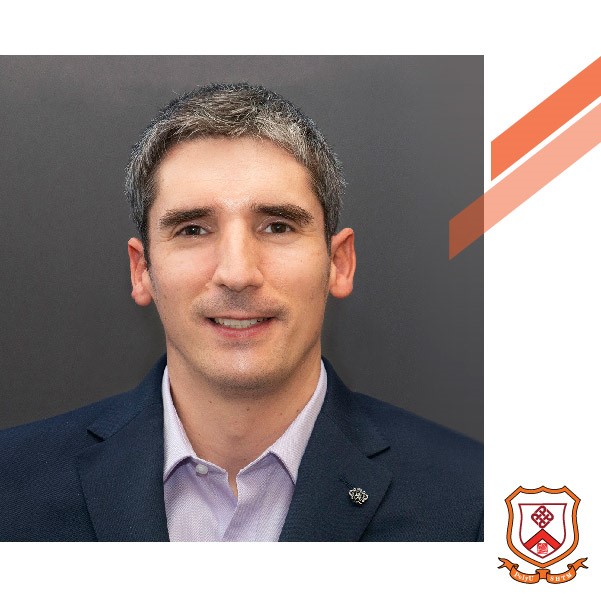
What is TRINET?
TRINET is an email distribution list that connects members of the international tourism research and education community. Its purpose is to promote an open exchange of ideas, information, and opinions that are relevant to tourism scholarship, including theory, research, education, policy development, and operational matters.
Postings are primarily of an intellectual and scholarly nature. TRINET does not accept postings that are purely commercial. Announcements which promote communication, research, education and scholarship, such as conference announcements, new books, announcements of academic positions, and the availability of funding and scholarship awards fit the spirit and mission of TRINET.
Become a TRINET Subscriber
To join TRINET, submit a biosketch of less than 250 words that includes the following:
- Full Name
- Position and affiliation
- City and country of employment
- Phone number
- Email address
- Research interests
- A list of two or three of your major research publications
Send your biosketch, in the body of the email, to trinet@hawaii.edu
The above information is required to ensure that all subscribers to TRINET are active in tourism. Your information is kept on file for other subscribers of TRINET to access.
We look forward to receiving your information and welcoming you to TRINET!
Founded in 1988 by
International Advisory Board

Sebastian Filep
Hong Kong Polytechnic University
Hong Kong
PhD, is Associate Professor at Bond University, Gold Coast, Australia. Sebastian has worked in various parts of Asia, Europe and Oceania and held previous positions at the Hong Kong Polytechnic University, Hong Kong and the University of Otago, New Zealand. He is known for his work on positive psychology and well-being in tourism, serving as an editor and author of three books on these topics. Filep is passionate about serving the global community of scholars and is on editorial boards of various tourism journals. He had served as Second Vice Chair of CAUTHE and was CAUTHE 2017 Conference Chair.

Jim Macbeth
Murdoch University
Murdoch, Western Australia
Jim Macbeth, established the first tourism course in Australia in Social Sciences in 1997 at Murdoch University, inspired by the Sociology of Leisure. He researches travellers and the communities they visit. He sees tourism as essentially political with questions of power, inequality, sustainability, and climate change driving his research. Jim served as Dean of the School of Social Sciences and Humanities, and now holds an Honorary Emeritus position at Murdoch, where he most recently studied the sociology of neo-tribes. He is an avid ocean sailor and since his retirement has sailed over 10,000 nautical miles.

Melanie Smith
Budapest Business University, Hungary
Melanie Kay Smith, is an Associate Professor and Researcher in Urban Studies, Cultural Heritage, Wellbeing and Tourism at Budapest Business University, Hungary and the University of Tartu Pärnu College, Estonia. She has also worked in Austria, Germany and Switzerland. Her expertise is in Wellness and Spas, Cultural Tourism, Heritage Management, Museum Management and Cultural and Creative Industries Management. Her current research focuses on resident wellbeing and urban cultural tourism as well as wellness and spiritual experiences. She was Chair of ATLAS (Association for Tourism and Leisure Education and Research) from 2005-2012.

Dimitrios Buhalis
Bournemouth University
Poole, United Kingdom
Dimitrios Buhalis, is a Strategic Management and Marketing expert specializing in information communication technology applications in tourism, travel, hospitality and leisure. He is currently Visiting Professor at the School of Hospitality and Tourism Management, The Hong Kong Polytechnic University. He is Director of the eTourism Lab and Deputy Director of the International Centre for Tourism and Hospitality Research, at Bournemouth University, UK. His research pioneers smart and ambient intelligence tourism with a particular focus on innovation, entrepreneurship and destination ecosystems management.

Neelu Seetaram
Leeds Beckett University
Leeds, United Kingdom
Neelu Seetaram, is a Professor of Tourism Economics at Leeds Beckett University where she researches the economic and financial analysis of the tourism and airlines industries. She serves on the editorial boards of Journal of Travel Research and Tourism Economics. Neelu is also an elected council member of the International Associated for Tourism Economics. She has advised government and businesses in the UK, Mauritius and Australia. Her expertise includes estimation of economic impact of the tourism sector, consumer behavior analysis and estimating the effect of government policies on tourism.
TRINET FAQ's
TRINET is a closed email distribution list. To request admission to the list, each potential subscriber is required to send a biosketch, to the TRINET administrator.
Once accepted, subscribers can post messages. Email addresses and personal information of TRINETTERS will not be passed on to anyone outside of the list.
No, the University of Hawaiʻi at Mānoa and the School of Travel Industry Management provide the resources necessary to maintain the TRINET list.
As of early January, 2018, there are more than 4,000 subscribers spanning more than 60 countries on TRINET. Though the majority of subscribers are in academia, active researchers in the government and private sectors are also represented.
Students at the doctoral level (PhD or professional doctorate) are encouraged to join. Due to capacity constraints, undergraduate and Master’s level students are not permitted to join at this time.
Please provide a short descriptive title or subject line to messages so that members can easily understand the nature of the post and delete those that are of no interest to them. The first paragraph should also help readers to filter messages of no interest to them.
The size of attachments should be kept to a minimum, as some subscribers have limited bandwidth and download capacity. Even better, provide links and URLs.
Valid messages to post on TRINET include:
- Commentary and discussion on issues and topics relevant to tourism scholarship, including theory, research, education, and practice.
- Requests for information and/or assistance on tourism research topics. However, please try to avoid “tell me everything you know” types of requests. Be specific and selective. In other words, please do some research before asking for assistance or guidance. Sometimes, your request can usefully include a short statement of your progress and gaps that normal searching have not filled.
- Announcements of conferences and events.
- General announcements by publishers of new books and other publications relevant to academic communities.
- Tables of contents of tourism journals, or of journals that publish tourism research and issues, are welcome.
- Announcements of new books for which reviewers are sought.
- Significant developments in institutions of higher learning, including universities, announcements of position vacancies, availability of bursaries and scholarships, and internationalisation initiatives.
Please be judicious in promoting your work on TRINET due to volume constraints. Announcements by all TRINETTERS on their new articles or books would simply be overwhelming. If there is a TRINET thread that relates to one of your articles/books, then advising colleagues of its existence is fine.
Please use our TRINET FACEBOOK group to promote your research work. TRINET on Facebook is moderated by Dimitrios Buhalis and has over 5,000 subscribers. It can be accessed here.
If you would like advice on how to get the most value out of your use of TRINET, please contact one of our International Advisory Board Members whose details are listed on the website.
As a subscriber, you have a responsibility to other TRINETTERs to respond thoughtfully, ethically, and on-topic. Personal comments directed at a person that are derogatory must be avoided. If you feel compelled to make a comment of a personal nature, please reply directly to the person and not via the entire TRINET list.
We also ask you to:
- Avoid posting replies to the entire TRINET community when a response to the original posting subscriber is more appropriate.
- Your own personal and thoughtful knowledge from research and practice can be useful in a discussion of research and analysis and is, therefore, appropriate.
- If you are going to be away and unable to check your email, Listserv recommends that subscribers who want to use auto-response messages should temporarily suspend their list (TRINET) subscription. Handling of out-of-office or vacation messages differ depending on the mail client or mail transport agent so you may not have the ability to control who receives or doesn’t receive the auto-response message.
TRINET is a free and critical thinking community that encourages lively debate. TRINET is an academic endeavour. However, with the rights of subscription comes responsibility not to abuse the system, its subscribers or its administrators.
- Respect the diversity of TRINET subscribers and their cultural norms.
- Be vigilant and sensitive about postings and self-regulate by ensuring that postings respect others’ analysis, opinions and feelings.
- Post only materials that are relevant to TRINET’s stated purpose.
- Use the same subject line as the original posting, so that those who are not interested in the debate can click the delete button.
- Take debates offline that develop in ways that are not central to TRINET’s purposes.
Some of the debates become highly “political” and quite contentious, which is to be expected. However, aspects of some debates may be disturbing to some subscribers. In this case the debate should occur in a professional and academic manner.
Tourism is itself essentially “political” and does not occur in a vacuum. Political decisions and ideologies (ie ‘politics’) affect tourism in all its manifestation. Controversial issues as they relate to tourism and travel are all relevant research and discussion topics. However, differences of opinion that result in an attack on the researcher as a person or on a group or nationality should be avoided. Be respectful of the philosophy of the other as you would like them to be respectful of yours. This does not mean you accept the philosophy and the related ideology and it doesn’t mean you must avoid analysis of the political impacts.
If abusive messages are posted on TRINET, its management may request the subscriber to desist; may give the subscriber a warning, or remove her/him from the list for a period of time.

